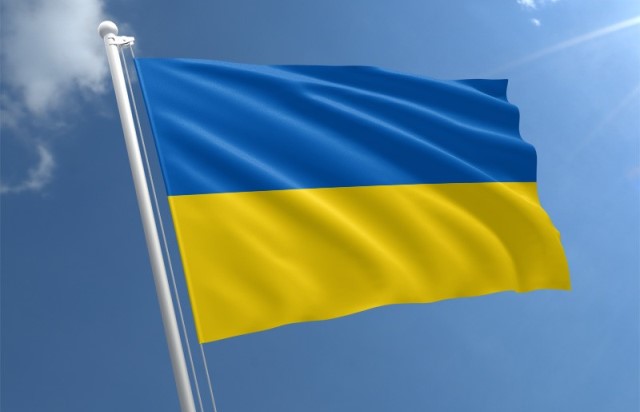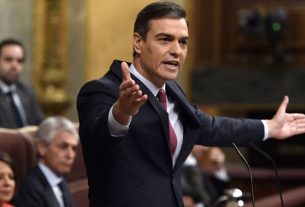Ukraine is able to export electricity for the first time in six months as its energy infrastructure recovers from months of repeated Russian attacks.
Russia began its lengthy and deliberate assault on Ukraine’s energy infrastructure last October.
It led to power cuts and scheduled blackouts, leaving towns and cities in darkness during winter.
Ukraine was forced to stop electricity exports – but will now be able to sell its excess power again.
Energy Minister Herman Halushchenko signed an executive order authorising the exports, although local customers remain the priority.
He said the system had been producing extra capacity for almost two months and that Ukrainians were not facing restrictions.
“The most difficult winter has passed,” Mr Halushchenko said on Friday.
“The next step is to start exporting electricity, which will allow us to attract additional financial resources for the necessary reconstruction of the destroyed and damaged energy infrastructure.”
He also praised the “titanic work” of engineers and international partners to restore the system.
Last month, residents across Ukraine told the BBC that power supplies were becoming more reliable.
“The city has transformed,” said Inna Shtanko, a young mother in Dnipro. “Finally, street lights are back, and it’s no longer scary to walk the city streets.”
However, the operator of the country’s electricity network, Ukrenergo, has warned that Ukraine could not count on Russian attacks stopping.
Ukrenergo said on Saturday that Russia has launched more than 1,200 missiles and drones at its energy facilities so far during the war.
The company described the assault as the largest attempt to destroy a European country’s energy system.
In cities across Ukraine this winter, some civilians had to use hubs known as “resilience centres” to keep warm during power cuts and freezing temperatures.
The hubs provided power and heat, as well as basic supplies like food and medicines.
Every one of Ukraine’s thermal and hydroelectric power plants has been damaged since Russia began targeting energy infrastructure.
Kyiv has also lost control of Europe’s biggest nuclear power plant at Zaporizhzhia, which is in Russian hands.
In June 2022, Ukraine had said it was hoping to bring in €1.5bn (£1.33bn) from electricity exports to the EU – its main export market for energy since the war began – by the end of the year.
With a dusting of fresh winter snow settling around us and the crackle of electricity loud in the wires over our heads, Michael runs his gloved fingers over golf ball-sized holes in the crippled hulk of a huge transformer.
“Here, and here, and here,” he says, as he shows where shrapnel from a Russian missile punctured the transformer’s thick sides.
Sharp metal fragments of the missile lie on the ground nearby.
Along the way, other transformers as big as bungalows are disappearing behind protective cocoons of concrete and sandbags.__BBC.com





